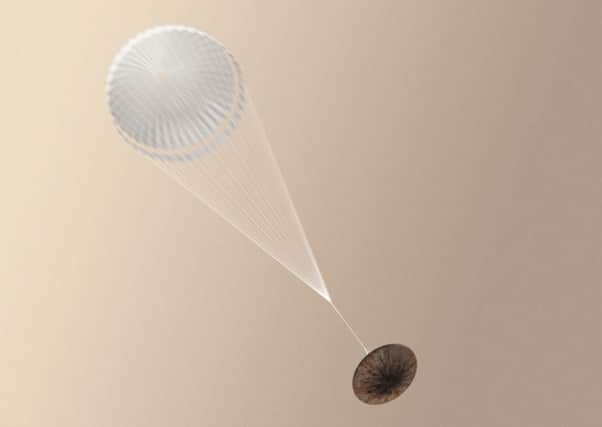Concern growing for Mars probe after signal lost


Staff at the ESA operations centre in Germany said yesterday that the fate of the Schiaparelli lander may not be known until this morning.
Schiaparelli separated from the ExoMars Trace Gas Orbiter (TGO) on Sunday after a 310-million-mile, seven-month journey through space.
The TGO is in the expected orbit and functioning normally.
Advertisement
Hide AdAdvertisement
Hide AdHowever, the loss of the signal before the lander reached the Martian surface left ESA scientists worried.
Paolo Ferri, ESA head of missions operations, said: “We saw the signal through the atmospheric phase, the descent phase – at a certain point it stopped.
“This was unexpected but we couldn’t conclude anything from that because this very weak signal picked up on ground was coming from an experimental tool.
“We waited for the Mars Express measurement which was taken in parallel. It was of the same kind, it was only recording the radio signal.
“The signal came through at 6:30pm and confirmed exactly the same. The signal went through the majority of the descent phase, but it stopped at a certain point that we reckon was before the landing.
“To conclude more on this, because there can be many, many reasons for that, we need more information. It’s clear these are not good signs.”
He said a thorough analysis of all available data would be crucial.
“The TGO which successfully entered into orbit did another good job, which is recording the telemetry that the EDM Schiaparelli lander was transmitting during this phase,” he added. “It’s a lot of data – we reckon we have on board more than 20mb of data.
Advertisement
Hide AdAdvertisement
Hide Ad“We should remember this landing was a test. As part of a test you want to know what happened.
“It’s fundamental that tonight we look at this telemetry.”
Following separation from the TGO, the probe was due to begin a six-minute journey through the Martian atmosphere. During this time it was travelling on autopilot.
Schiaparelli’s main job is to test out the Russian-designed landing system for a future ExoMars rover mission due to be launched in 2020. The landing site is Meridiani Planum, a flat region that interests scientists because it contains an ancient layer of haematite. On Earth, the iron oxide mineral almost always forms in a watery environment.